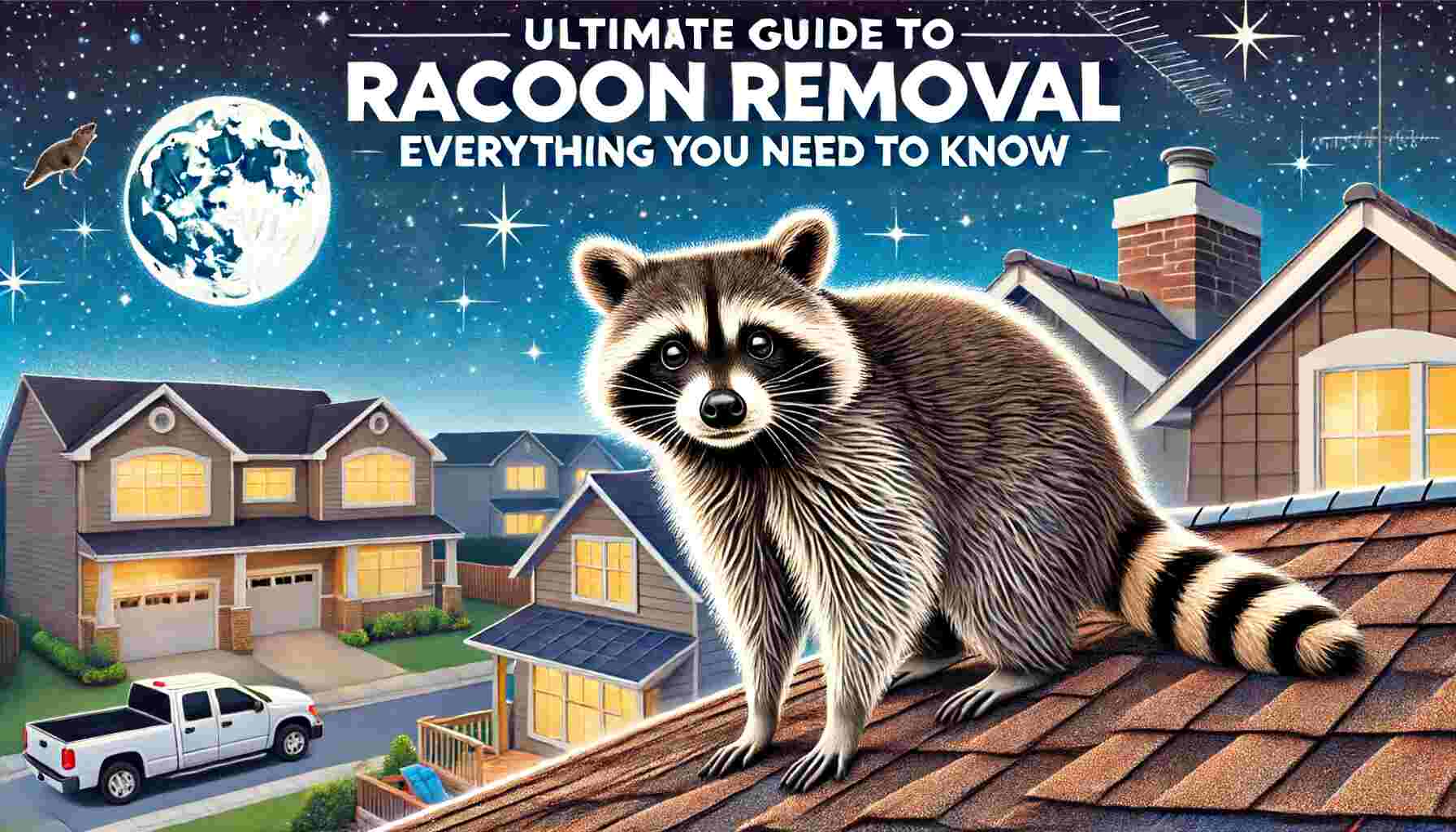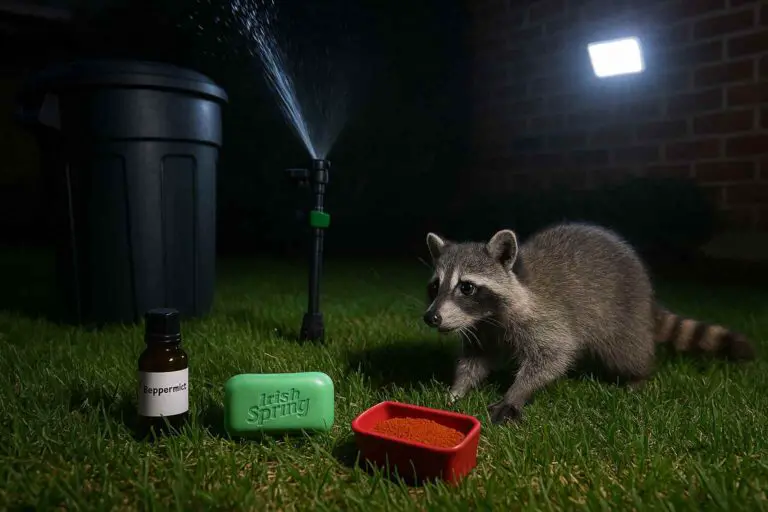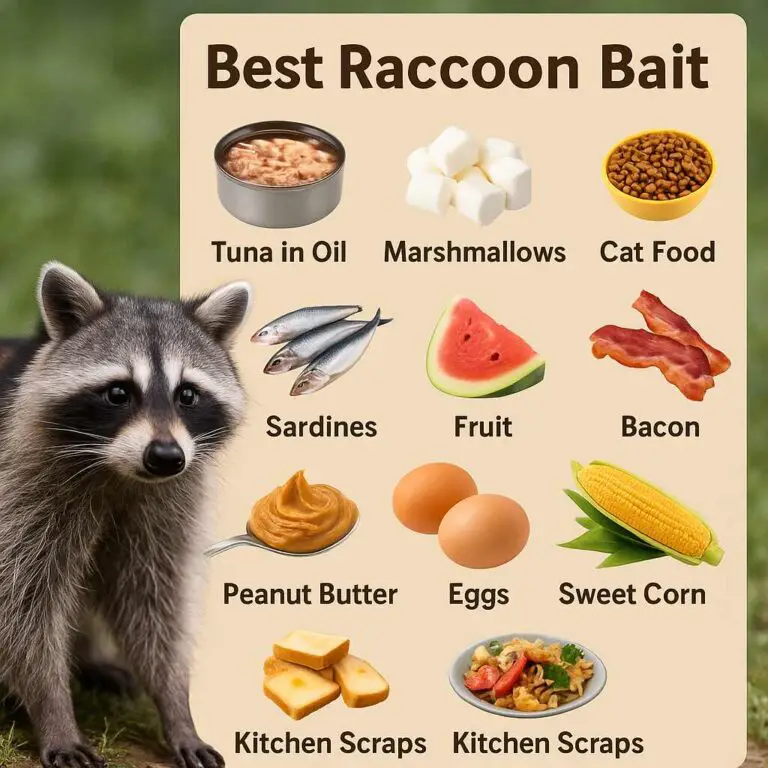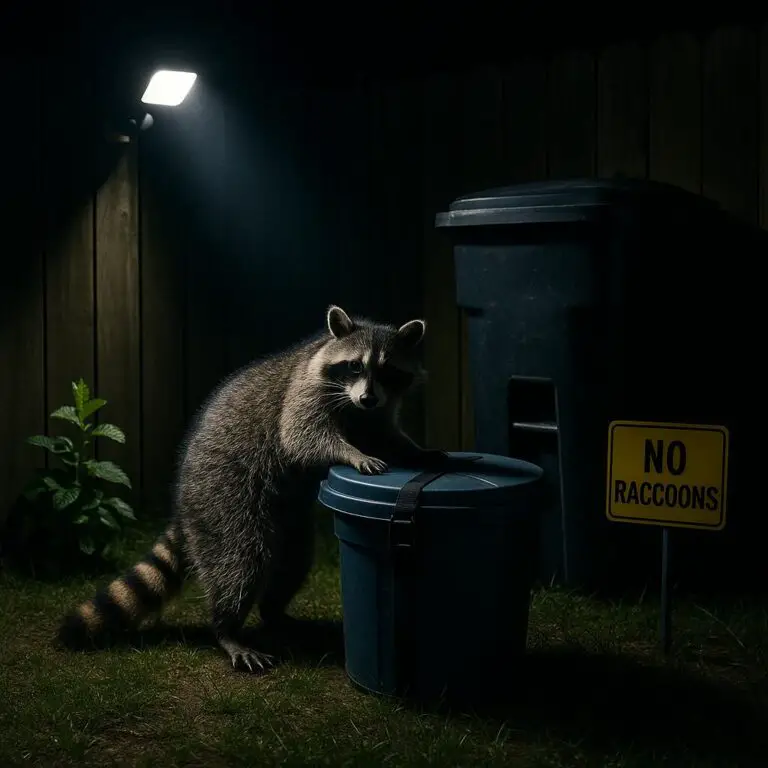Overview of Raccoon Behavior and Common Problems They Cause
Raccoons (Procyon lotor) are nocturnal mammals known for their intelligence, dexterity, and adaptability to urban environments. These omnivores are highly resourceful and have thrived alongside human development, often causing significant issues for homeowners.
Raccoon Behavior
Raccoons are predominantly nocturnal, foraging at night and resting during the day. They are highly adaptable, with a diet that includes fruits, nuts, insects, small animals, and human food waste. Their nimble hands and problem-solving abilities allow them to open containers, doors, and even complex locking mechanisms.
Common Problems Caused by Raccoons:
- Property Damage: Raccoons can cause substantial damage to property, including tearing shingles, ripping insulation, and chewing electrical wiring. Their quest for shelter often leads them to attics, basements, and crawl spaces.
- Health Hazards: Raccoons can carry diseases such as rabies, leptospirosis, and raccoon roundworm. Their droppings can also be a source of parasites and pathogens, posing a health risk to humans and pets.
- Nuisance: Their rummaging through trash cans, gardens, and pet food can be disruptive and frustrating for homeowners.
Legal Considerations and Wildlife Protection Laws
Raccoons are protected under various state and federal laws, so it’s crucial to understand the legal framework before attempting removal. These regulations are designed to ensure humane treatment and conservation of wildlife populations.
Federal Laws
The Migratory Bird Treaty Act and the Endangered Species Act protect certain wildlife species, but raccoons are primarily regulated at the state level.
State Laws
State regulations vary significantly:
- Permits: Some states require a permit to trap or relocate raccoons.
- Relocation Restrictions: Many states have strict rules about where and how far you can relocate a captured raccoon to prevent the spread of diseases and to ensure the raccoon’s survival.
- Humane Treatment: Laws often mandate the use of humane traps and prohibit methods that cause unnecessary suffering.
It’s essential to consult your local wildlife agency or a licensed wildlife control professional to ensure compliance with all relevant laws.
DIY vs. Professional Raccoon Removal Options
When dealing with raccoon infestations, homeowners have two primary options: DIY removal or hiring professional wildlife control services. Each approach has its advantages and disadvantages.
DIY Raccoon Removal
Pros:
- Cost-Effective: DIY methods are generally less expensive than hiring professionals.
- Immediate Action: You can take action immediately without waiting for a professional to schedule an appointment.
Cons:
- Safety Risks: Handling raccoons can be dangerous due to the risk of bites, scratches, and disease transmission.
- Limited Effectiveness: DIY methods may not be as effective, especially if you lack experience and knowledge of raccoon behavior.
- Legal Issues: Without proper knowledge of local laws, you might inadvertently violate wildlife protection regulations.
DIY Methods:
- Exclusion Techniques:
- Seal Entry Points: Inspect your home for possible entry points, such as gaps in the roof, vents, and chimneys. Use durable materials like metal mesh to seal these openings.
- Secure Garbage Cans: Use raccoon-proof garbage cans or secure lids with bungee cords to prevent access to food sources.
- Repellents:
- Natural Repellents: Use substances like ammonia-soaked rags or predator urine around your property to deter raccoons.
- Electronic Repellents: Motion-activated lights and sprinklers can scare away raccoons.
- Trapping:
- Live Traps: If legal in your area, you can use live traps baited with food to capture raccoons. Ensure you follow all regulations regarding trap placement, checking frequency, and humane treatment.
Recommended Products:
- Ammonia Soaked Rags – Effective natural repellent.
- Raccoon-Proof Garbage Can – Secure your trash from raccoon raids.
- Motion-Activated Sprinkler – Deter raccoons with water.
Professional Raccoon Removal
Pros:
- Expertise and Experience: Professionals have the knowledge and experience to handle raccoon removal safely and effectively.
- Comprehensive Solutions: They can identify and address the root cause of the infestation, preventing future issues.
- Legal Compliance: Professionals are well-versed in local laws and regulations, ensuring humane and legal removal.
Cons:
- Cost: Professional services can be expensive, particularly for extensive infestations.
- Scheduling: You may need to wait for an appointment, which could delay resolution.
When to Call a Professional:
- Severe Infestation: If you have multiple raccoons or a large infestation, professional help is recommended.
- Health and Safety Concerns: If you suspect the raccoons are sick or aggressive, it’s safer to let professionals handle the removal.
- Structural Damage: If raccoons have caused significant damage to your home, professionals can assess and repair the damage while ensuring the raccoons are removed.
Recommended Services:
- Critter Control – Nationwide wildlife control services.
- Terminix Wildlife Control – Professional pest and wildlife control.
Additional Tips and Precautions
Preventing Future Infestations
- Regular Inspections: Conduct regular inspections of your property to identify and seal potential entry points.
- Yard Maintenance: Keep your yard clean and free of debris, which can attract raccoons. Trim tree branches away from your home to prevent easy access to the roof.
- Pet Food Management: Avoid leaving pet food outside overnight, as it can attract raccoons.
Dealing with Raccoon Damage
- Attic Repair: If raccoons have damaged your attic, repair any insulation, wiring, and structural damage. Consider using raccoon deterrents like naphthalene balls or ultrasonic devices.
- Clean-Up: Safely clean and disinfect any areas contaminated by raccoon droppings using protective gear to prevent disease transmission.
Conclusion
Dealing with raccoons can be challenging, but understanding their behavior, legal considerations, and effective removal methods can help you manage and prevent infestations. Whether you choose DIY methods or professional services, always prioritize safety and humane treatment.
For more information and professional advice, consult your local wildlife agency or a licensed wildlife control expert.
Remember, staying informed and prepared is the key to successful raccoon removal and prevention.








